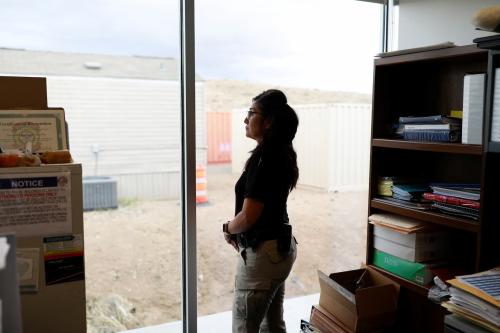Unaddressed systemic racism is, in my mind, the most important issue in the United States today. And it has been so since before the founding of our nation.
Slavery was America’s “original sin.” It was not solved by the framers of the U.S. Constitution, nor was it resolved by the horrendous conflict that was of the American Civil War. It simply changed its odious form and continued the generational enslavement of an entire strata of American society. In turn, the Civil Rights Movement struck a mighty blow against racism in America, and our souls soared when Dr. King told us he had a dream. But we were and still are far from the “promised land.” And even when America rose up to elect its first Black President, Barack Obama, we may indeed have lost ground as a collective nation along the way.
That is our legacy as Americans, and in many ways, the most hateful remnants of slavery persist in the U.S. today in the form of systemic racism baked into nearly every aspect of our society and who we are as a people. Indeed, for those tracing their heritage to countries outside of Western Europe, or for those with a non-Christian belief system, that undeniable truth often impacts every aspect of who you are as a person, in one form or another.
The reality of this history has been on stark display in recent weeks. From the terrible killings of George Floyd and Ahmaud Arbery, to the countless, untold acts of racism that take place every day across America, these are the issues that are defining the moment—just as our response will define who we are and will be in the 21st century and beyond. Truly, the very nature of our “national soul” is at stake, and we all have a deep responsibility to be a part of the solution.
For us at Brookings, race, racism, equality, and equity are now matters of presidential priority. Addressing systemic racism is a key component of those efforts, with research also focusing on the Latino and Native American communities; faith-based communities, including our Jewish and Muslim communities; and the threat of white supremacy and domestic terrorism also playing a major role. It will also include work on the important need for comprehensive police reform, to include reform rooted in local community engagement and empowerment. We will not solve systemic racism and inequality over-night, and we have so much work ahead. But in a world where we often spend more time debating the nature of our problems than taking meaningful action, we must find ways to contribute however we can and to move forward as a community.
I firmly believe that we as Americans cannot remain silent about injustice. Inaction is simply unacceptable, and we have to stand up and speak out. And if our elected representatives and our elected leadership deny the problem, and refuse to act, then we must take on the responsibility of reform from the bottom up with special attention at the ballot box.
And especially for those Americans who may look like me – a white American male – or come from a similar background, action begins with reflection, and most importantly listening. It’s also about elevating and supporting the voices of those traditionally underrepresented, or even silenced, throughout society. How We Rise is an absolutely critical part of that solution.



Commentary
Systemic racism and America today
June 11, 2020